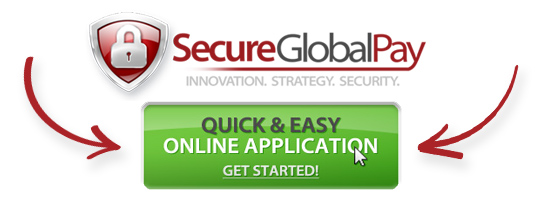
Merchant Gateway: How It Benefits Your Business
Running a business can be overwhelming, especially for start-up business owners. Deciding on a financial institution for merchant services can be equally daunting. When making these decisions, today’s merchants often use a merchant gateway solution that acts as a point-of-sale system allowing businesses to accept payments via multiple channels.
Thanks to the pace of technology, a payment processing gateway has become one of the most cost-effective solutions in the marketplace today.
A payment gateway empowers and streamlines the multiple processes that have to do with accepting cards and doing business efficiently and effectively.
And by making the right choices when applying for a merchant account, business owners also get the chance to make more profits and improve their bottom line.
A Merchant Gateway
A merchant payment gateway is a technological solution that helps business owners accept debit card and credit card payments.
A merchant gateway does not only serve online businesses, it is a payment solution that can also be used for “in person and face to face” sales to accept credit cards and many other digital card transactions.
Using a merchant payment gateway protects businesses from the typical liabilities in the marketplace and helps increase customer reach because it accommodates multiple methods of payment.

How a Payment Gateway Works
A merchant gateway works like clockwork when you invest in the right payment service provider.
- The customer places an order online or in person.
- The data is encrypted and sent from the customer’s credit card to the merchant’s bank account via SSL encryption (Secure Socket Layer).
- The merchant forwards the transaction data to the merchant gateway through SSL encryption.
- The gateway sends the transaction to the payment processor. The details of the transaction are forwarded by the payment processor to the merchant acquiring bank.
- The payment processor, via the acquiring bank, sends the transaction information to the card associations. MasterCard, Visa, Discover and American Express are examples of card associations.
- The card issuing bank confirms that the transaction has been approved or declined and sends a response code to the acquirer. If the transaction was disapproved, the bank gives a reason for the disapproval.
- The issuing bank forwards the response code to the payment processor. The payment processor sends the same code to the merchant gateway.
- The merchant gateway sends the code to both the cardholder and merchant in the final step of the credit card processing operation.
Despite the multiple steps involved, this entire merchant gateway process lasts less than 5 seconds.

How a Merchant Payment Gateway is Secure
One of the major advantages of using a merchant payment gateway is its top notch security.
Mainstream card associations follow a set of golden rules and security standards–Payment Card Industry-Data Security Standards, otherwise known as PCI-DSS or PCI, for short.
It is mandatory for businesses and organizations with access to sensitive card information to always follow this set of PCI laid down rules.
When a customer purchases items, the customer is shown the total amount due and prompted to enter credit card information in the POS system.
The merchant gateway encrypts and protects this sensitive data using an HTTPS protocol that provides an additional layer of security for information transfers.

Benefits of Using a Secure Gateway
Merchant Dashboard: With a merchant gateway dashboard, business owners get to monitor their operations all in one place.
This feature is ideal for businesses with multiple sales outlets.
With a single easy-to-view dashboard, business owners get to seamlessly structure their daily sales, best forming products, traffic data, customer information and even loyalty reward programs in one place.
Virtual Terminal: A virtual terminal is a web application integrated into a merchant gateway so that business owners can accept and process payments safely from their many devices.
This virtual terminal is similar to traditional card-present terminals used in stores.
Reporting: A merchant gateway allows business owners to generate and send custom reports from any device.
These reports can be edited when needed and allow merchants to filter results. Reports can be created daily, monthly, quarterly or annually.
Recurrent Billing: Recurrent billing allows business owners to schedule payments.
Vendors get to determine how they want to schedule their payments, whether weekly, bi-weekly, monthly or bi-monthly.
This feature also allows merchants to store credit card information safely for later payments.
Hosted Checkout Page: The hosted checkout page is located on another site so when a customer clicks on a “checkout” button the customer is taken to a new domain where payment information is submitted.
Businesses using a merchant gateway can generate this hosted payment page in a matter of seconds for their goods and services.
Integrating a merchant gateway gives vendors or business owners access to a PCI Compliant check out form.
In other words, even when a merchant’s site has been compromised, the payment information of a cardholder is still protected.



